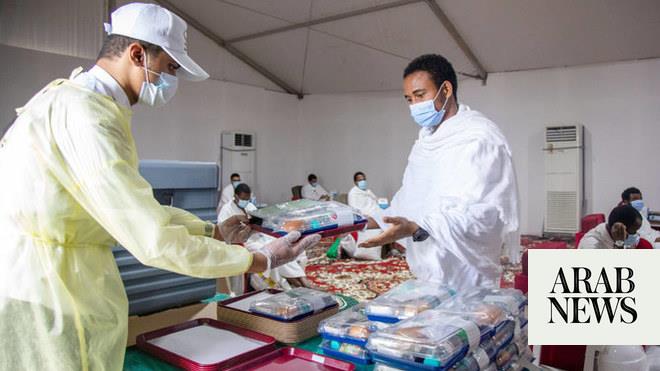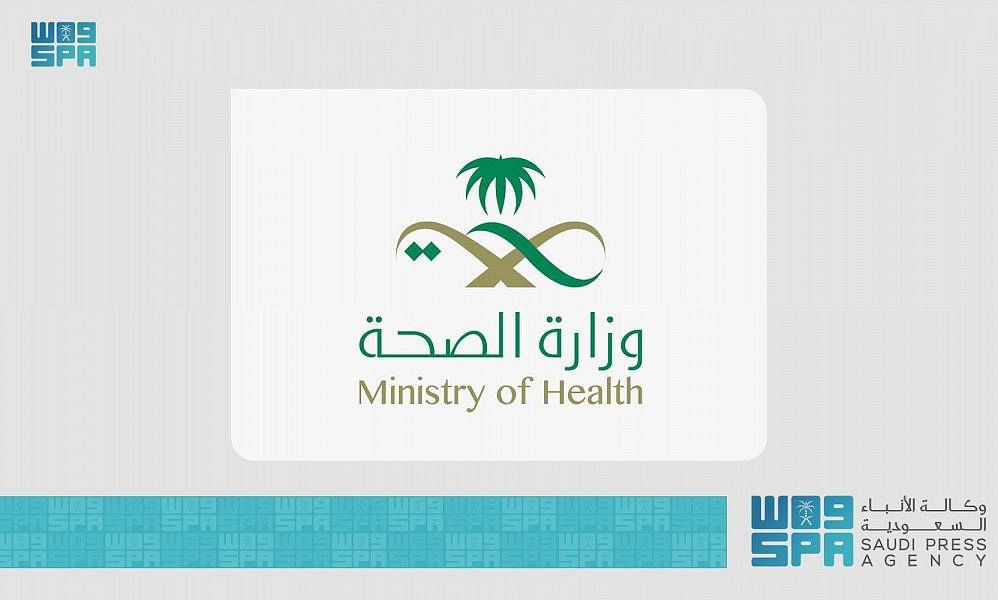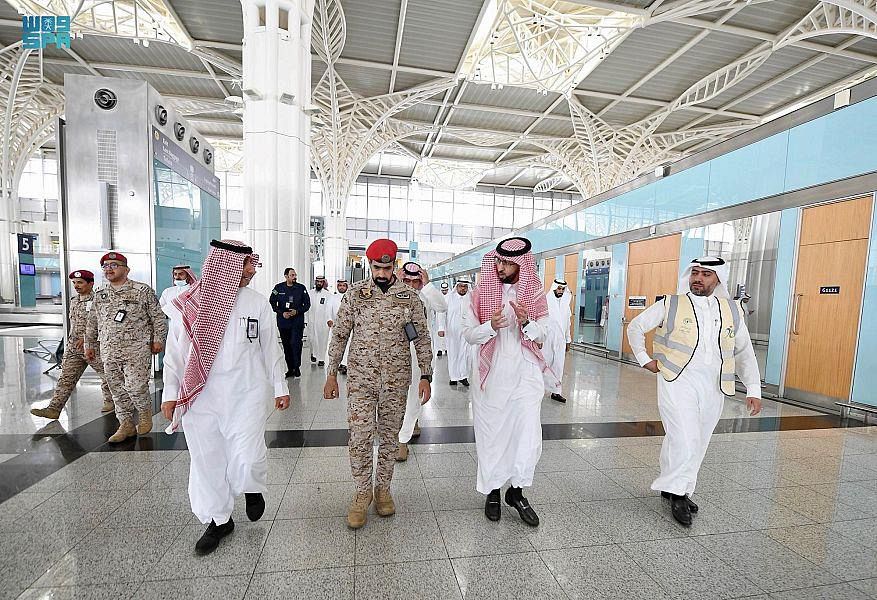
JEDDAH: Every year, Saudi Arabia welcomes millions of pilgrims embarking on a spiritual journey to the holy cities of Makkah and Madinah. A critical aspect of ensuring their comfort and well-being is the provision of nutritious and culturally appropriate food to meet their diverse needs.
Makkah municipality, together with Hajj service providers and various relevant authorities, is making efforts to provide the best catering services.
Ayed Al-Gwinm, the deputy minister for Hajj affairs, told Arab News his ministry has been working with its partners to license service providers to meet food and catering goals.
“Catering consists of two components. One pertains to residences where pilgrims have the choice to engage an approved contractor, cook their own meals, or purchase food from the market,” he said.
“The second component involves catering services in the holy sites, where approximately 400 licensed caterers have been qualified to provide around 7.5 million meals per day.”
According to a statement by Ahmad Al-Sharif, the chairman of Makkah’s food and catering sector, during the 2022 Hajj season catering companies distributed more than 15 million meals at the holy sites, and more than 20 million meals were provided in the holy city.
Participating as a caterer during Hajj requires meeting certain quality standards. The accreditation process focuses on evaluating facilities, labor, transportation, and qualifications.
There are two international standards for food safety regulations. The first standard is the ISO 22000 food safety management system, which classifies facilities based on a star rating, while the second standard is the FSSC standard.
The municipality attaches great importance to food control, especially because of its direct impact on the health of pilgrims.
To ensure the safety of kitchens, restaurants and other establishments that deal with food during the season, the municipality has formed several field teams of specialists. These teams conduct inspections around the clock, especially during hot weather in Makkah, to ensure continuous monitoring and regulation.
The municipality has established a number of mobile laboratories that are located in the central area of Makkah and the holy sites.
Osama Zaitoony, a spokesman for the municipality, told Arab News: “These laboratories examine food samples from restaurants and kitchens to ensure their safety and suitability for human consumption during Hajj.”
The municipality is currently implementing a project which utilizes the most effective methods and new techniques in food control, while also enhancing the involvement of the private sector and its collaboration with the catering system during the Hajj season.
As part of this initiative, the municipality plans to conduct visits to over 22,000 food establishments and thoroughly inspect more than 5,000 food samples, ensuring that all meet the required standards.
In another project, the municipality and Umm Al-Qura University joined forces for a health control initiative concerning food and catering during the Hajj season.
Abdullah Al-Zaidi, the director general of municipal affairs, told Arab News: “The objective of the collaboration is to enhance the effectiveness of health monitoring for catering and nutrition services during the Hajj season. I also aim to ensure the highest standards of health and food safety by increasing the compliance index in catering kitchens.”
Before the season began, a total of 830 kitchens in Makkah and the holy sites were inspected to measure things like food temperature and pollution levels.












